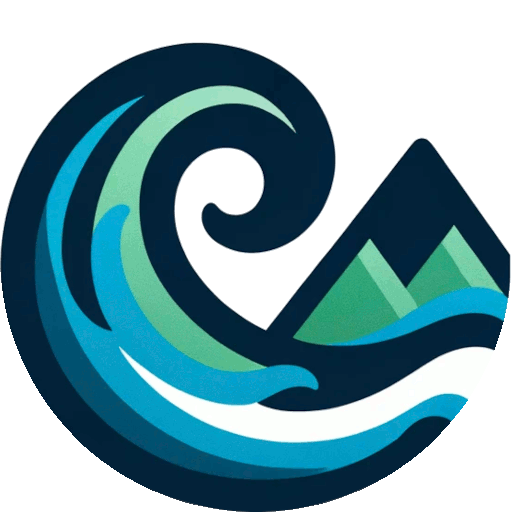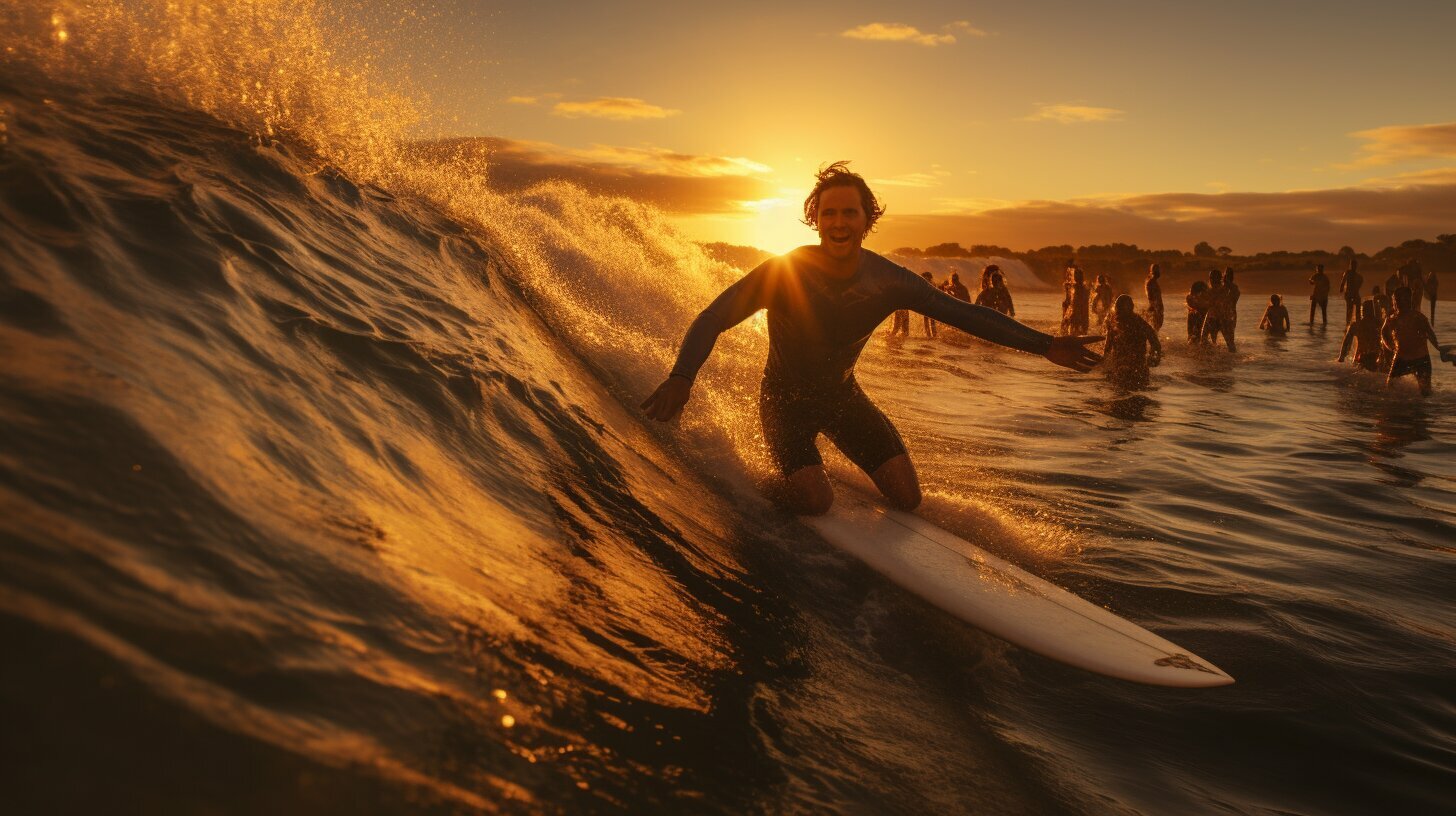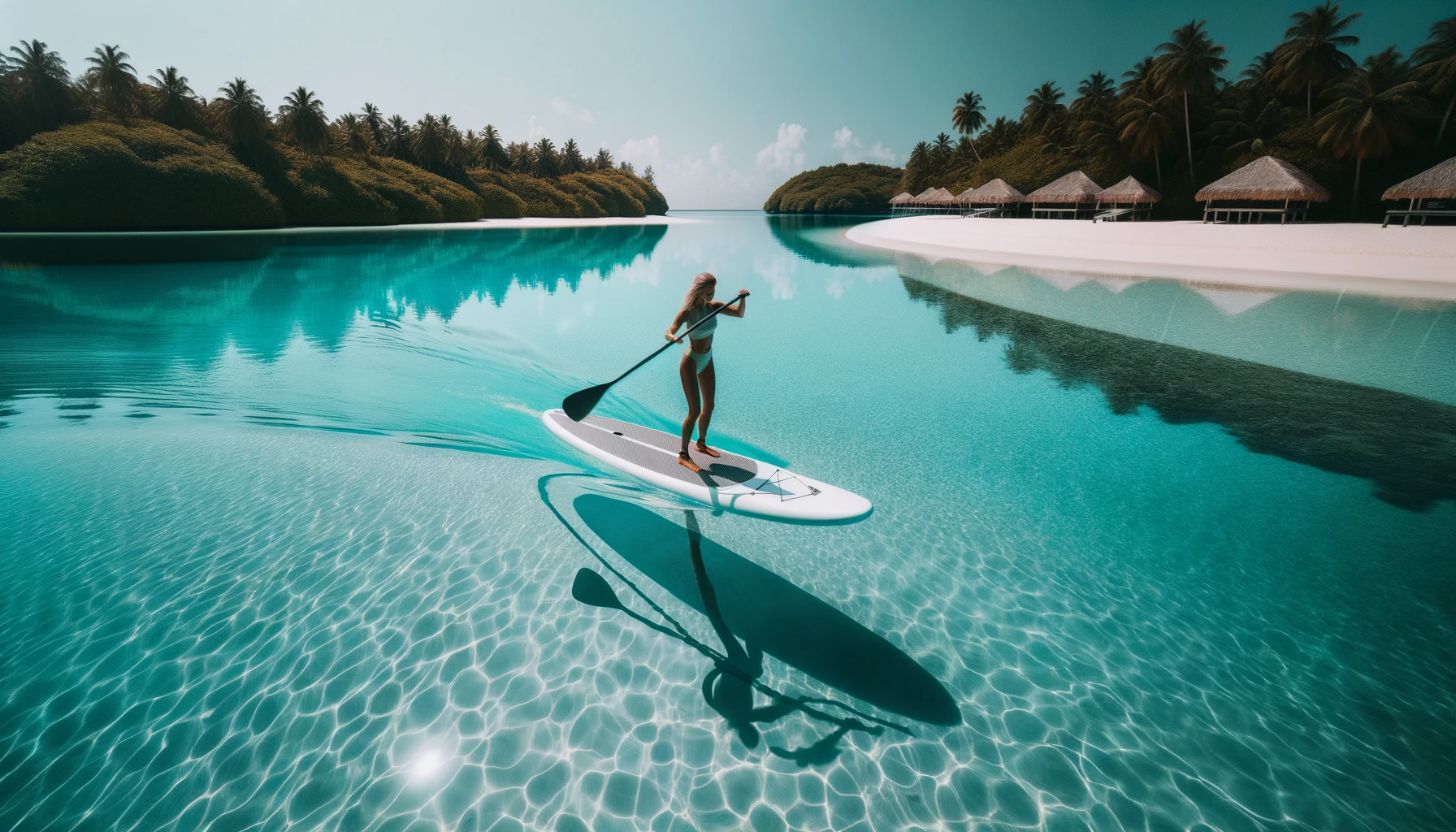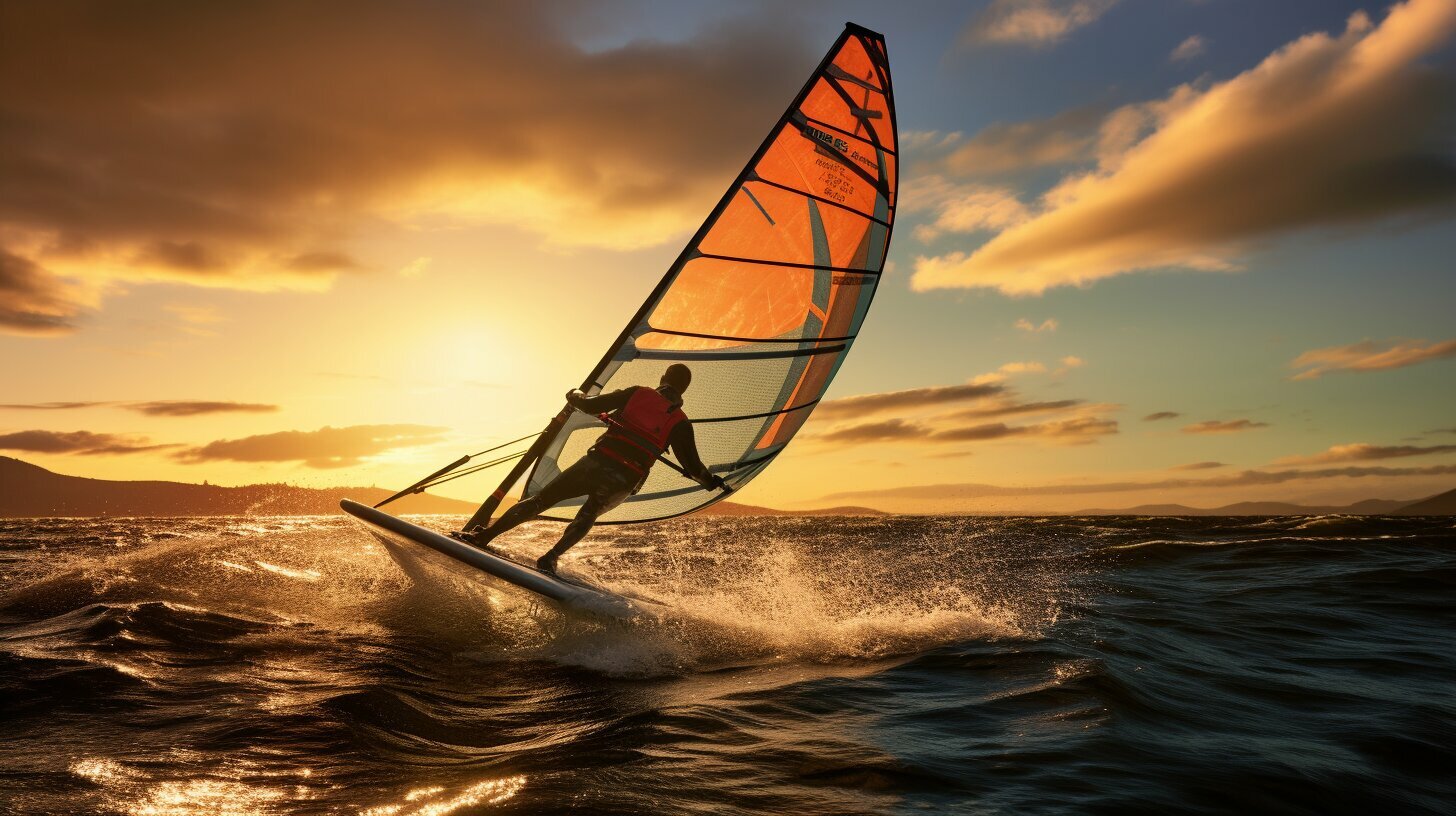If you’ve ever wanted to experience the thrill of catching a wave and riding it to shore, then learning to surf is the perfect activity for you. Not only is it an exhilarating sport, but it also provides a great workout for your entire body.
However, before you jump on a board and hit the waves, it’s essential to take surf lessons. Surf lessons provide the necessary guidance and instruction that will help you learn proper techniques, ocean safety, and everything else you need to know to become a successful surfer.
Key Takeaways
- Learning to surf is an exciting and thrilling activity that provides a great workout for your body.
- Taking surf lessons is crucial for beginners to learn proper techniques and ocean safety.
- Surfing is a sport that can be enjoyed by individuals of all ages and skill levels.
Why Take Surf Lessons as a Beginner
If you’re new to surfing, it’s essential to take surf lessons to get started on the right foot. Surf lessons offer a safe and structured environment for learning, with professional instructors who can guide you through the basics of beginner surfing.
During surf lessons, you’ll learn proper technique, ocean awareness and safety measures. Surf schools are available to provide tailored instruction to meet your needs. They typically offer beginner lessons in small groups or private sessions with certified instructors. You’ll learn everything from selecting the right surfboard to understanding wave dynamics.
Disclosure: When you buy through links on our site, we may earn an affiliate commission.
Why Surf Lessons are Important for Beginner Surfers
Surfing may seem like an easy sport, but without proper guidance and instruction, it can be dangerous. Surf lessons teach you how to surf safely and with confidence. You’ll learn the fundamentals of paddling, standing up on the board, and riding the waves.
Surf lessons also help you avoid developing bad habits that can hinder your progress and put you at risk of injury. With instruction from experienced surf instructors, you’ll learn how to read waves and select suitable surf spots.
Surf schools offer a supportive and encouraging environment for beginners to learn to surf. The instructors will work with you to identify your strengths and weaknesses, helping you to improve your surfing techniques. You’ll also get to know fellow beginners with whom you can practice and share your experiences.
Don’t underestimate the value of surf lessons when starting out in the sport. They’re an investment in your safety and success as a beginner surfer.
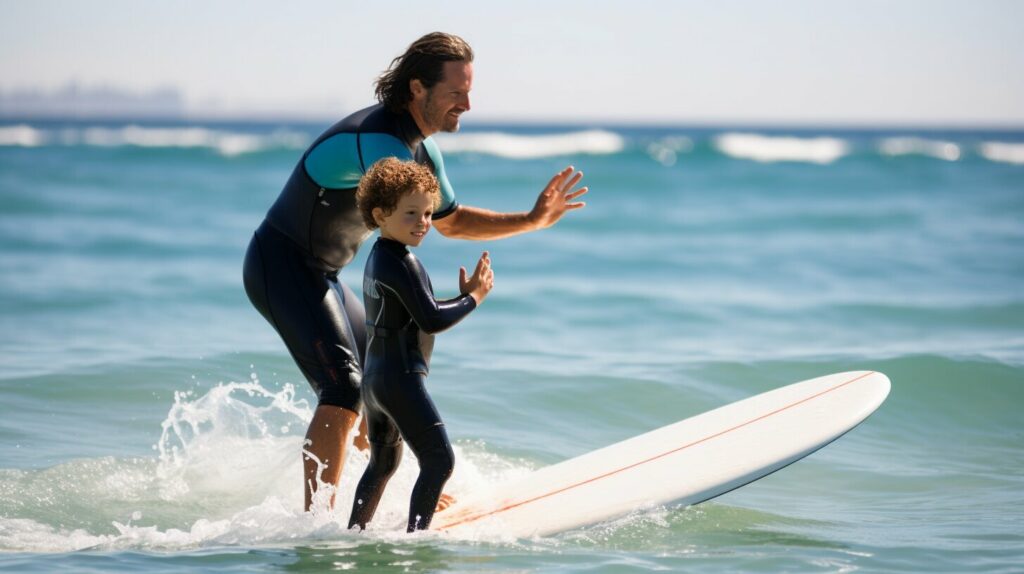
Finding the Right Surf Instructor
Choosing the right surf instructor is crucial for your surfing journey. An experienced and certified surf instructor can provide tailored guidance and ensure your safety in the water. Here are some tips for finding the right surf instructor:
- Look for instructors with good reviews and ratings from previous students.
- Choose a surf school with professional and experienced instructors who can offer personalized instruction.
- Ensure the surf instructor has the necessary certifications and licenses, such as CPR and first aid training.
- Consider the location and the surf conditions where the lessons will take place. A good surf instructor will choose a safe and suitable spot for beginners.
Surf schools can be a great resource for finding the right surf instructor. They have a team of highly qualified instructors who can provide a range of services, from private lessons to week-long surf camps. Surf schools can also offer valuable resources, such as surfing tips, equipment rental, and ocean safety guidance.
Remember, the right surf instructor can make all the difference in your surfing journey. Take the time to do your research and choose an instructor who meets your needs, goals, and budget.
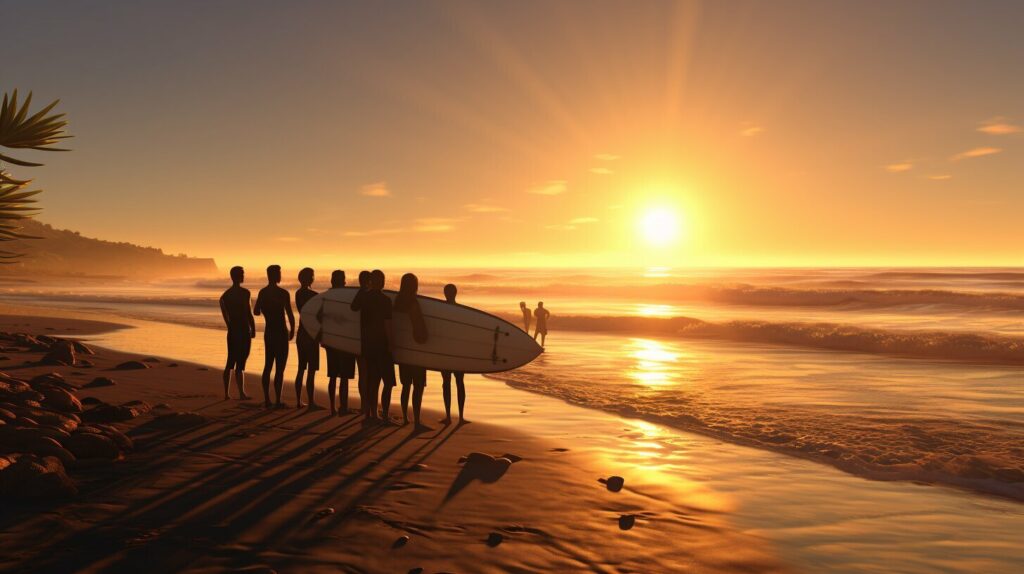
Essential Surfing Equipment for Beginners
As a beginner surfer, having the right equipment is essential to your success. Here are the key pieces of equipment you’ll need:
Surfboard
For beginners, it’s best to start with a longboard or foam board, which offer greater stability and buoyancy. When buying a board, consider your weight, height, and skill level. If you’re not ready to invest in your own board yet, surfboard rental shops are available near most surf spots.
Wetsuit
Wetsuits keep you warm and protect your skin from the sun, wind, and rough surfboard surface. A 3/2mm wetsuit is the most popular choice for beginners, providing warmth and flexibility. Invest in a good quality wetsuit and take care of it to ensure longevity.
Other Accessories
Other necessary accessories include surf wax, which helps to create a non-slip surface on your board, and a leash, which attaches your ankle to the board and prevents it from drifting away. Sunscreen, a hat, and sunglasses are also important for protecting your skin and eyes from the strong sun.
Learning to surf requires patience, practice, and the right equipment. Take your time to select the right gear and make sure your equipment is well-maintained to ensure the best possible surfing experience.
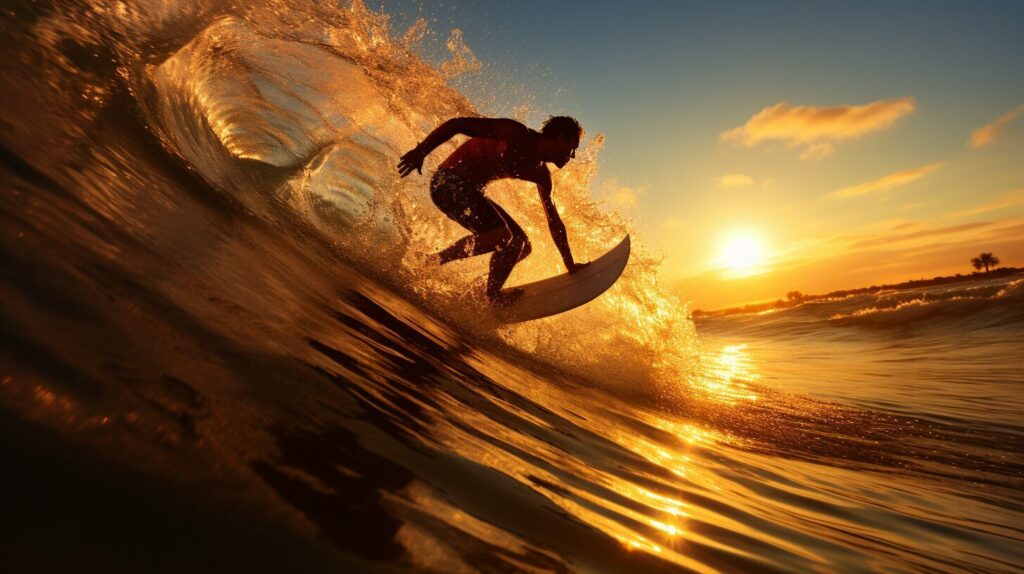
Learning Surfing Techniques
Learning how to surf requires a good understanding of the proper surfing techniques. With practice and dedication, you can master the art of surfing and enjoy this exciting sport to the fullest. Here are some useful tips to help you get started:
- Paddling: Paddling is a key skill that allows you to catch waves and move around the lineup. Place your hands flat on the board and use a crawl stroke to propel yourself forward.
- Popping up: Once you catch a wave, it’s time to pop up onto your board. Lie on your stomach with your toes hanging over the edge of the board. Push yourself up with your arms and jump into a standing position with your feet shoulder-width apart.
- Positioning: The right position on your board is essential to maintaining balance and catching waves. Lie flat on your board and paddle forward to gain momentum, keeping your weight centered.
- Riding the waves: When you catch a wave, it’s time to ride it. Bend your knees slightly and angle your board towards the shore to gain speed. Keep your eyes focused on the horizon and use your arms to maintain balance.
Remember, mastering these techniques takes time and practice. Don’t get discouraged if it takes a few attempts to get it right.
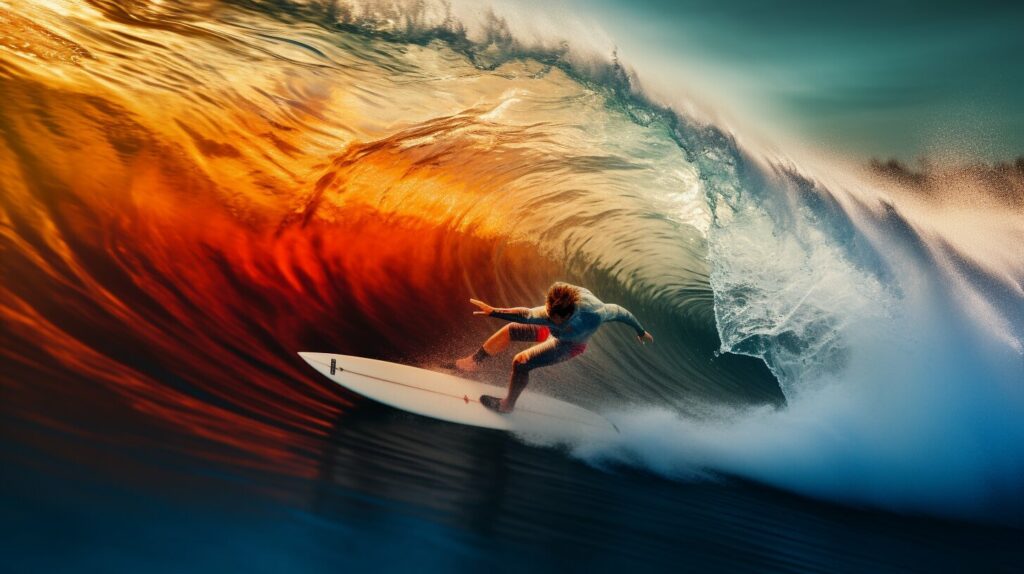
“Surfing is not about being the best. It’s about enjoying the moment and having fun.”
Understanding Surf Etiquette and Ocean Safety
If you’re new to surfing, it’s essential to understand the etiquette and safety rules of the ocean. Following these guidelines will not only help keep you safe but will also show respect to other surfers in the lineup.
Surfing Tips: Always observe the lineup before paddling out. Take note of the patterns of the waves and the positioning of other surfers. Avoid paddling through the lineup and instead paddle around it. Keep your board close to you and never ditch it as it can become a hazard to others.
Beginner Surfing: As a beginner, it’s best to start at surf spots designated for learners. These spots are typically less crowded, calmer, and have more forgiving waves. Stay away from crowded surf spots and only venture out to more challenging breaks once you’ve gained enough experience.
| Surf Etiquette: | Ocean Safety: |
|---|---|
|
|
Surf Spots: Be aware of the surf spots you choose to surf in. Some locations may have higher risks associated with them, such as rocky bottoms, strong currents, or shallow reefs. Before heading out, do your research and seek advice from local surfers or lifeguards.
By following proper surf etiquette and ocean safety rules, you can enjoy the thrill of surfing while keeping yourself and others safe. Remember to always respect the ocean and other surfers and have fun!
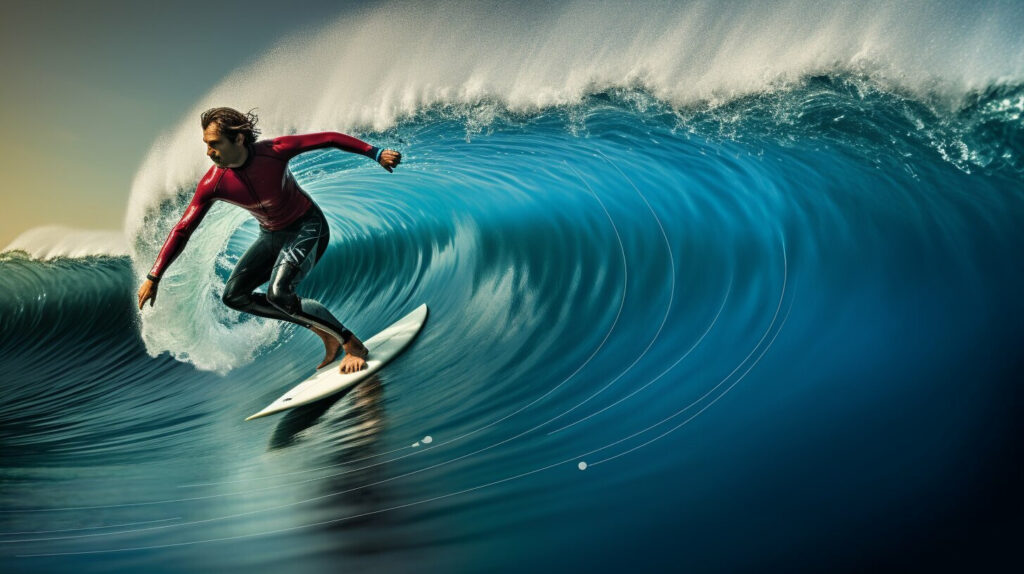
Overcoming Common Surfing Challenges
Learning to surf can be challenging, especially for beginners. Don’t be discouraged if you face obstacles along the way. Here are some common surfing challenges and tips for overcoming them:
- Challenge: Balancing on the board. It can be difficult to maintain balance while standing on a surfboard, especially in choppy waters.
- Tip: Start by practicing balance exercises on land, such as standing on one foot. Once you feel more comfortable, practice popping up quickly onto the board while maintaining your balance.
- Challenge: Dealing with waves. Waves can be unpredictable and intimidating, especially for beginners.
- Tip: Start by practicing in smaller waves and gradually work your way up to larger ones. It’s also important to learn how to read the waves and anticipate their movements.
- Challenge: Building confidence in the water. It’s natural to feel nervous when first starting out, but it’s important to build confidence in the water.
- Tip: Take your time and don’t push yourself too hard. Start by practicing in calm waters and gradually work your way up to more challenging conditions. It’s also helpful to practice breathing techniques and visualization exercises to calm your nerves.
Remember, everyone faces challenges when learning to surf. Don’t give up and keep practicing. With time and dedication, you’ll be riding the waves like a pro.
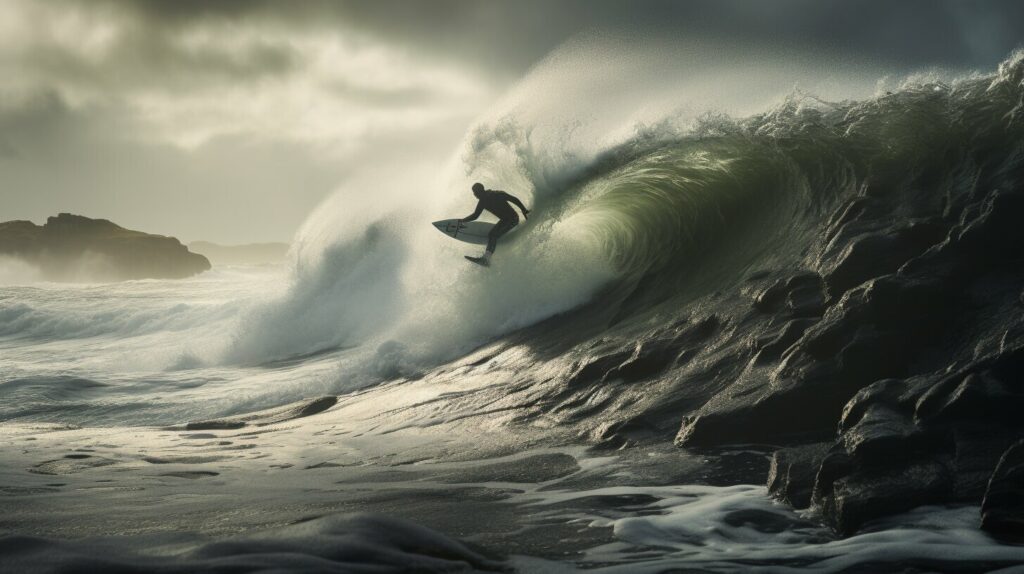
Advancing Your Surfing Skills
Now that you have a good understanding of surfing techniques, it’s time to take your skills to the next level. One of the best ways to continue advancing your surfing is by taking surf lessons. Not only will this provide you with professional guidance, but it will also help you learn new techniques and perfect existing ones.
Surf lessons can be tailored to your skill level and specific goals, whether that be improving your turns, riding bigger waves, or learning new tricks. Instructors can offer personalized feedback to help you progress and identify areas that need improvement. Don’t be afraid to ask questions and seek feedback during your lessons!
Another way to advance your surfing skills is by practicing new techniques on your own. Take some time to experiment with different surfboards, waves, and conditions. This will not only improve your skills but also build your confidence in the water.
It’s important to remember that advancing your surfing skills takes time and dedication. Don’t get discouraged if you don’t see immediate progress. Keep practicing and taking lessons, and most importantly, have fun!
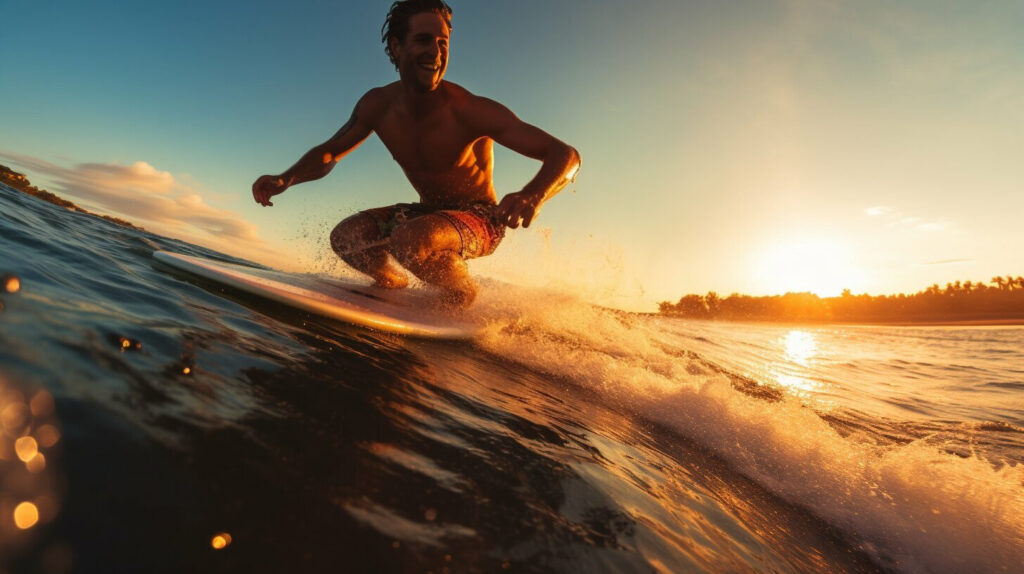
As you continue to advance your surfing skills, remember to always prioritize safety and respect for other surfers in the lineup. Keep learning and exploring new surf spots, and who knows, you may just discover your new favorite break!
Conclusion
By now, you understand the thrill of riding the waves and the importance of surf lessons for beginners. Remember that surfing is not just a sport but a lifestyle and a way to connect with nature.
As you continue to progress, keep in mind the various surf spots available to you. Explore new beaches and take your surfing skills to the next level. Don’t forget that surf lessons are an essential part of advancing your skills and learning new techniques.
Learning to surf may seem daunting, but with dedication and practice, you can master it. So go out there and catch some waves. Who knows, you might just become the next surfing sensation.
Thank you for reading, and we hope this guide has been helpful in your surfing journey.
FAQ
Q: Why should I take surf lessons as a beginner?
A: Taking surf lessons as a beginner is essential to learn proper techniques, safety precautions, and ocean awareness. Professional instruction can help you progress faster and avoid common mistakes.
Q: How do I find the right surf instructor?
A: To find the right surf instructor, it’s important to choose someone experienced and certified. Look for instructors with positive reviews and consider surf schools that provide professional guidance.
Q: What essential surfing equipment do I need as a beginner?
A: As a beginner, you’ll need a suitable surfboard, a proper wetsuit, and other necessary accessories like leash and wax. Surfboard rental options may be available if you’re not ready to invest in your own equipment yet.
Q: What surfing techniques should I learn as a beginner?
A: As a beginner, you should focus on mastering techniques such as paddling, popping up, positioning on the board, and riding the waves. Practice and guidance from experienced surfers will help you improve.
Q: How can I practice surf etiquette and ensure ocean safety?
A: It’s important to respect other surfers in the lineup, understand right of way rules, and practice good ocean safety habits. Choose appropriate surf spots for your skill level and be mindful of your surroundings.
Q: What are some common challenges faced by beginner surfers?
A: Beginner surfers often struggle with balancing on the board, dealing with waves, and building confidence in the water. Overcoming these challenges takes practice, patience, and a positive attitude.
Q: How can I advance my surfing skills beyond the beginner level?
A: To advance your surfing skills, continue taking surf lessons and practice new techniques. Challenge yourself by exploring more challenging surf spots and seeking guidance from experienced surfers.
